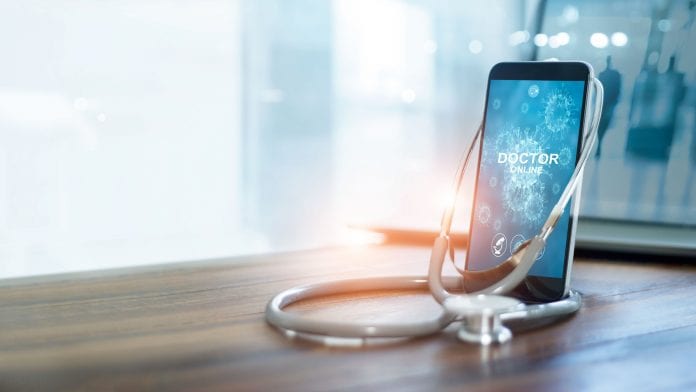Clinicians who are diagnosing and treating dysphagia in COVID-19 patients should use telemedicine in order to reduce risk to themselves, say experts.
The COVID-19 pandemic has seen a rise in the use of telemedicine for healthcare services from routine checkups to therapy and rehabilitation. Now, doctors at Johns Hopkins Medicine have said that clinicians should use telemedicine to diagnose and treat this side effect of COVID-19 in order to protect themselves from contracting the infection.
The editorial has been published in Archives of Physical Medicine and Rehabilitation.
Risk-prone conditions
As the usual diagnosis and treatment of dysphagia involves bedside evaluation looking at swallowing ability and changes in anatomy, for example, diagnosing and treating this condition is a high-risk activity due to the need for social distancing.
Treating dysphagia remotely is not new, having been researched and practised (to a smaller extent) for nearly 20 years. However, more widespread use had previously been hampered by technological difficulties, high expense of equipment, lack of standardised training, and billing and coverage issues.
Martin Brodsky, associate professor of physical medicine and rehabilitation at the Johns Hopkins University School of Medicine, said: “Although vast improvements in telemedicine for dysphagia have been made in recent years, patients continue to be limited in their ability to receive effective remote care. With the current pandemic, we need that to change because the traditional clinical and instrumental exams used for assessing dysphagia are putting health care workers who treat patients with COVID-19 at risk for contracting and further spreading the disease.”
“We need innovative thinking and technologies to be rapidly translated into clinical practice to enable telemedicine services for dysphagia, now more than ever.”
The doctors said that relying on methods such as medical history reviews and patient reporting of symptoms is not enough.
Brodsky added: “The irony is that patients with COVID-19, especially those who were recently removed from mechanical ventilation in intensive care units, may be among those who most need the clinical and instrumental exams for properly and comprehensively assessing dysphagia.”



